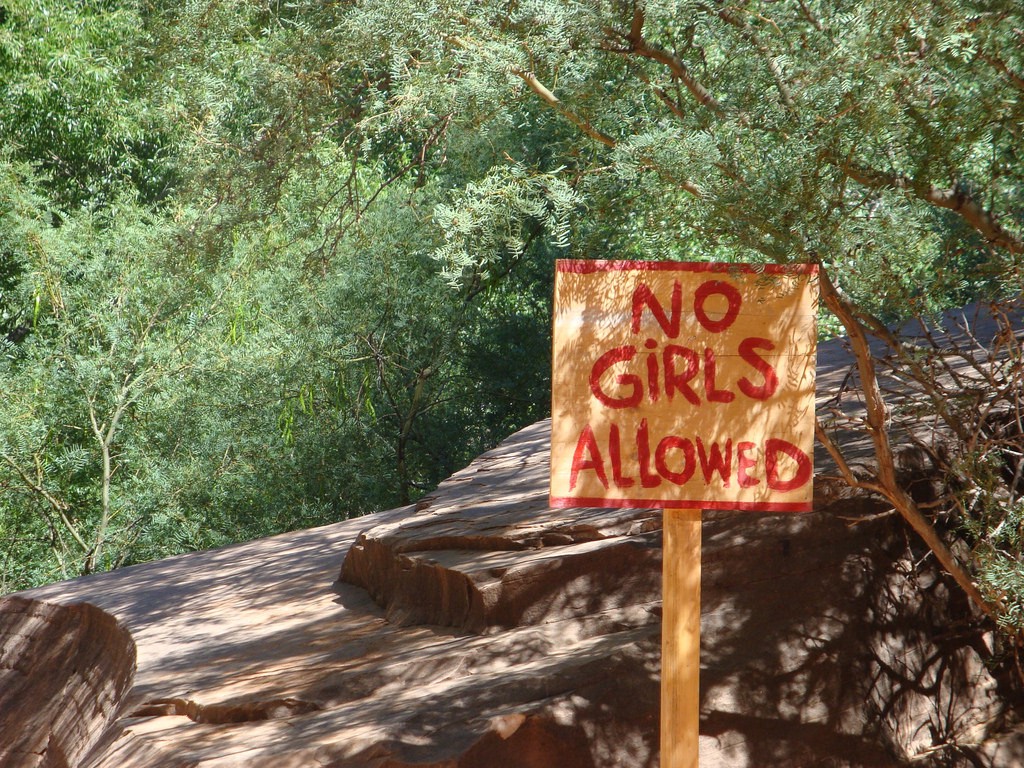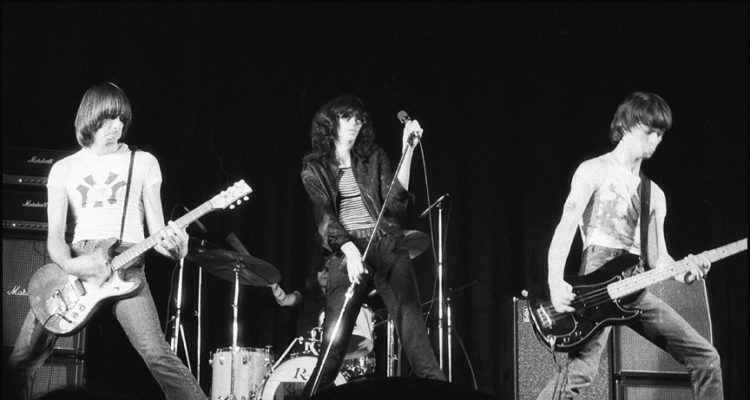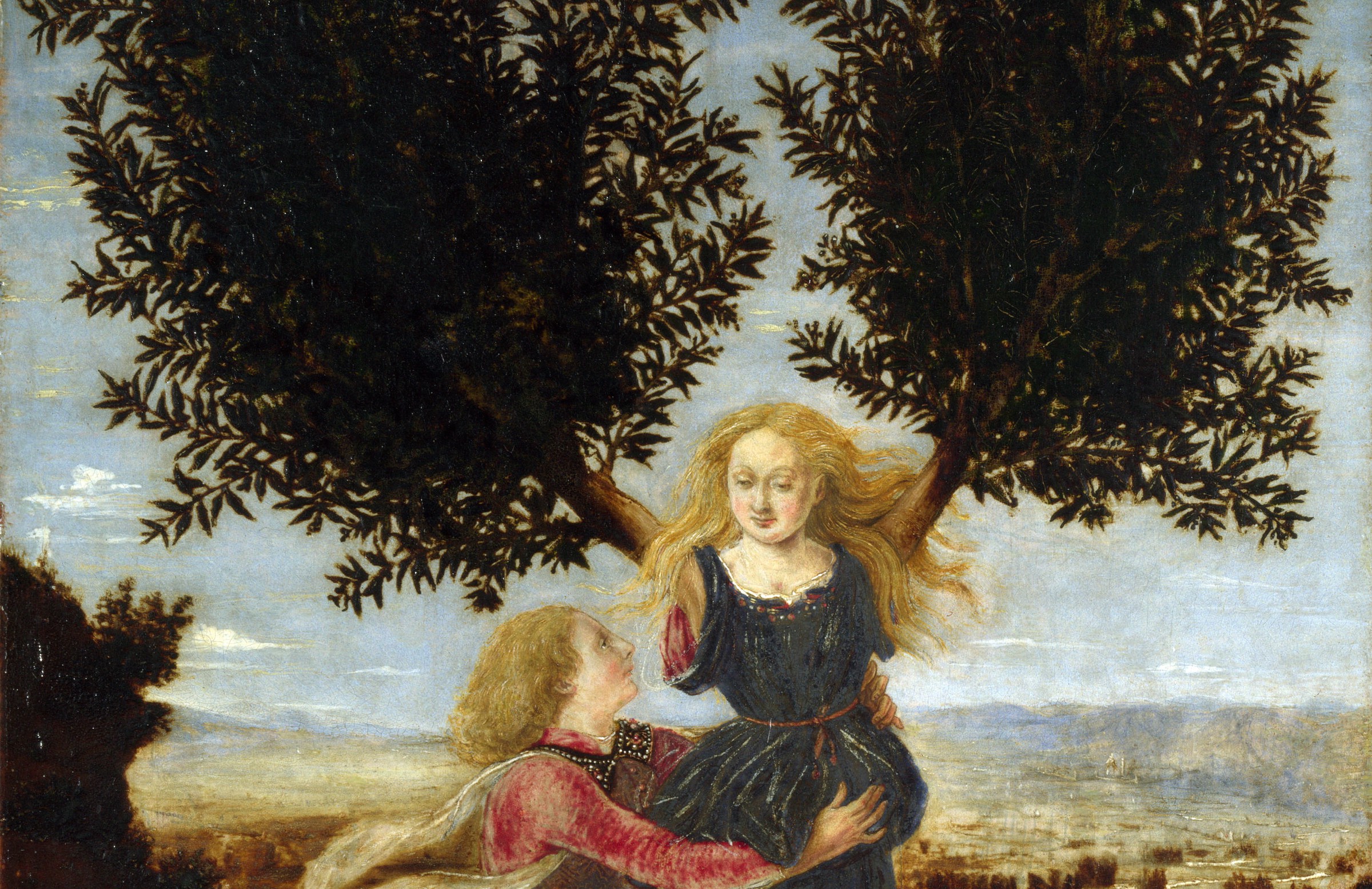Books & Culture
Girly Book Covers and Man Book Clubs

by Tabitha Blankenbiller

Four years ago, when I was still a writer zygote, I attended an MFA program dinner honoring Cheryl Strayed, who’d read on campus. Wild had recently debuted with the kind of acclaim we aspiring newbies dream up at our drunkest. While I sat at the table trying to balance the beast of a graduate student in the presence of free food with the desperate need not to come off as a ravenous, sloppy hummus machine, I listened as Strayed recounted a recent experience with a (male) interviewer. During the course of the conversation he expressed his admiration for the cover design, featuring a single (now iconic) red-laced Danner boot. This un-gendered photo had made this man feel that it was “okay” to read a book about a woman’s experience written by a woman, and he asked if the design was a conscious decision — perhaps part of a clever, all-out marketing effort — to convince men to pick up the text.
“I’m not looking for male readers,” said Strayed. “I’m looking for readers.”
Isn’t that, I thought at the time, what we’re all looking for? Isn’t a reader simply hungry for a story?
***
Maybe The New York Times knew that we needed a laugh.
After all, this was a morning we woke up to Donald Trump as the uncontested Republican presidential nominee. We needed a conduit for rage at a political tempest too grave and complicated to wrap our dissent around.
Perhaps they’d been curled up on the downy puff piece for a while, waiting for this opportune moment to impress advertisers with a wicked click-through rate. Dropping an article mastheaded with a picture of grinning, balding white men in what appears to be a funeral parlor designed by Betty Draper cheekily proclaiming “the one rule of men’s book club is no books about women, by women” was Twitter gasoline.
Maybe The New York Times knew that we needed a laugh.
We can debate the levels of hubris and/or drunkenness in the NYT editorial room all we want, but what we have is an article claiming real estate and resources in The New York Times’ Books section. Space and author payments that could have, you know, gone toward any other article. One that didn’t profile a misogynistic boy’s club with all the cheerful winking of a local newscaster ending the night on a squirrel that can water-ski.
Because, as female writers, as writers of color, as writers of nontraditional body types and nonbinary genders and different sexualities, you know what? We get it. We know there is a large swath of the American population that is not going to read our work, even if the upper echelons of the publication industry stoop to letting us in. Not 24 hours before the Book Club Bomb, Mallory Ortberg at The Toast published a sublime response to Entertainment Weekly’s piece quoting an editor claiming that there was no bias in extravagant book advances, and she would have paid a debut author “the same money if she weighed 500 pounds and was really hard to look at.” We don’t need to read the statistics from VIDA or The Guardian because this is the reality we’re living in. Each of us have a dozen anecdotes that tell the same story. These are the odds stacked against us.
As Ortberg points out in her essay, the shock and rage over the publisher’s comments do not stem from the fact that the vast number of books that are published, books that are promoted, books that are stocked, books that are reviewed, books that are read come from a narrow and homogenized cross-section of a working writer population that continues to become bolder, more nimble, more outspoken and more diverse. The anger, that sweet sweet 140-character indignation writhing in GIFs and hashtags, is a reaction to the casual, cavalier and shameless propagation of sexist, racist, homophobic and transphobic truths.
The anger, that sweet sweet 140-character indignation writhing in GIFs and hashtags, is a reaction to the casual, cavalier and shameless propagation of sexist, racist, homophobic and transphobic truths.
No matter how much writers themselves are working to become more inclusionary (evidenced this same week by the wide and deafening denouncement of Antioch Review’s abominable transphobic rant by the literary community, these ideas that books chosen by grandmothers are worthy of scorn and a man can only enjoy a book by and about someone who looks and lives and loves as he does, they keep getting published. They keep getting perpetuated. You cannot deny the right of these small-minded individuals to exist, but the elevation? That’s voluntary. That’s purposeful.
It is easy to dismiss the article and its subjects as a relic. The Man Book Club’s members are, as noted in the article, “lawyers and engineers in their mid-50’s.” We can roll our eyes as they decry “chick-lit” and fondly reminisce over how they’ve served as each other’s divorce lawyers at different points in their lives. The thoughtless way they note that their wives’ clubs “have a lot of turnover” without examining what obligations may prevent a 21st century woman from finishing a novel and planning an accompanying themed dinner party every month. It’s convenient to claim that this misogyny is an endangered strain, one that is a generation removed from our own, one that will die when these men are all inevitably gone and buried.
***
Reading the Man Book Club article a second time through today, hearing Strayed’s voice echo back, the cover of a childhood book resurfaced in my mind. No Girls Allowed, one of 300 Berenstain Bears titles released by Stan and Jan Berenstain. My copy was tucked into an Easter basket when I was five, between a bag of Brach’s jellybeans and a pack of yellow Peeps. The cartoon cover image, an ominous illustration of boy bear cubs sneering at a lone sister bear cub left outside of their clubhouse, seared into my brain from amidst the plastic pink woven basket and neon grass confetti. NO GIRLS ALLOWED was painted in red as a warning. A distinction. A threat.
Sister Bear could run faster, shoot better marbles and hit a baseball better than Brother Bear and his friends. And damn, it got annoying fast. She was such a pest, winning all the time, even though she was younger and smaller than all the neighborhood bros. The brothers get together and build a fortress clubhouse with the distinct purpose of excluding her and her evil “gloating” ways. Sister Bear, confused and devastated, runs home crying. Papa Bear is so incensed that he sets right to work on building a way cooler playhouse for his daughter, so she can also exist in the world. When the boys discover this super sweet new pad, they decide equality might actually be the way to go (for better real estate and snack delivery from Mama Bear), and so they decide to call a truce — as long as Sister Bear can agree to keep all that “boastfulness” to a dull roar.
Sister Bear was such a pest, winning all the time, even though she was younger and smaller than all the neighborhood bros.
I doubt there was any intentional subtext in my mom’s gift-shopping book choice. It was likely one of the only titles stocked at the local Fred Meyer, a half-conscious shelf grab between picking up the Easter dinner ham and remembering Cadbury eggs. She probably didn’t even think much of the subject matter once she opened it up and read it to me at bedtime. Even if the journey was problematic, it was the resolution that counted, right? I can tsk the moralistic Berenstains and their heavy-handed nuclear family lessons from this distance all I want — 25 years later, the same age as my mother was then, child free with a career writing feminist culture critique. The books were forged from, and wildly successful in, a culture littered with passive, micro-lessons for children. The body of Barbie. Ariel and her lost voice. The Berenstains and their bears weren’t aiming to change the world they sold 240 million books in; they were simply happy to perpetuate it.
And we absorbed it, breathed it in. Like each generation of girls before and after. We saw the blueprint for selves we did not understand. We drank the water because this culture was our only well.
I can’t say that this was the first time I learned the importance of tempering passion and achievement for the sake of a man’s feelings. Just as I’m sure that the wives of the Men’s Book Club members have heard whining over more than how unfair it is that they have nifty book clubs, and that a writer as lauded, awarded and beloved as Strayed has been wholeheartedly congratulated for eking out a great story despite her gender.
The Man’s Book Club could have asked for an invite to their wives’ clubs and discovered what it was about these literary works that made them so beloved to their spouses.
When threatened, the boy cubs could have leaned closer in on Sister Bear, stacked her into their teams against other, less capable boys. The Man’s Book Club could have asked for an invite to their wives’ clubs and discovered what it was about these literary works that made them so beloved to their spouses. Strayed’s interviewer could have asked himself why he was so tentative about reading women’s literary work. The New York Times could have uncovered one of a million new voices; told a story about those who are transcending rather than conforming.
Reading the article yet again, my pity for this dude squad begins to blossom. To think that they will head into the ground without the words of Terry Tempest Williams or Lidia Yuknavitch or Sandra Cisneros in their hearts. They will never listen to Lemonade. They will never roam a bookstore free to any possibility that may hook their gaze, any staff member’s favorite new selection. They will be halted because the pantones on a cover are too flamboyant or pastel. Or the name hints at something feminine. Or the author’s jacket photo couldn’t pass as their own mugshot. Too comfortable to learn, too lazy to evolve, their inertia cheered by one of our nation’s most iconic publications. As artists clamor and push, the pillars of the establishment burrow into their clubhouse in a contented hibernation.
The walls, however, are drafty. We can hear them snore.









